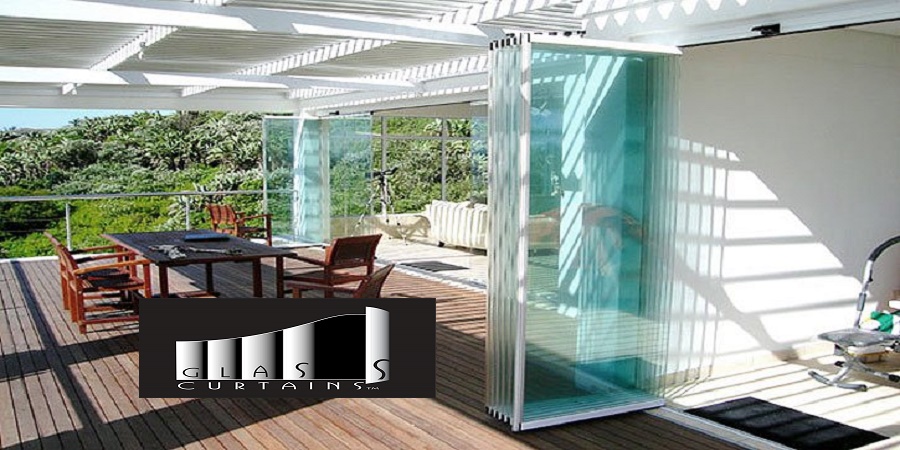Frameless glass refers to a glazing system that provides structural support without the need for conventional frames. This innovative design typically employs strong, tempered glass panels that are equipped with minimalistic mounting and fastening systems. Page dichvubinhduong.top share the absence of bulky frames allows for unobstructed views, making frameless glass an increasingly popular choice in contemporary architecture.
Introduction to Frameless Glass
One of the primary benefits of frameless glass is its aesthetic appeal. The sleek, transparent nature of this type of glazing creates a seamless appearance that enhances the overall beauty of any space. By eliminating visible frame lines, frameless glass provides an uninterrupted visual connection between indoor and outdoor environments. This quality positions it as a favored option for modern homes, office buildings, and commercial spaces seeking to maximize natural light and present a more airy atmosphere.
In terms of functionality, frameless glass offers several advantages. It is highly customizable, allowing for various applications, such as glass doors, railings, and room dividers. Such versatility makes it suitable for a wide array of design styles, from minimalist to luxurious. Furthermore, frameless glazing systems are generally easier to maintain, as glass surfaces can be cleaned without the obstruction of a frame. Lighting and space perception are often enhanced, making interiors appear more spacious while showcasing architectural details.
The growing trend of frameless glass in modern design has significantly influenced the construction and architectural landscape in Myanmar. As urbanization continues to rise, GlassCurtains the demand for aesthetically pleasing and functional building materials increases. This shift highlights the importance of frameless glass suppliers in Myanmar, who play a crucial role in meeting the evolving needs of both residential and commercial projects.
The Market Demand for Frameless Glass in Myanmar
Frameless glass has gained significant traction in Myanmar’s construction and interior design industries over recent years. This surge in demand is primarily driven by a combination of increasing urbanization, a burgeoning middle class, and a shift towards modern architectural aesthetics. Homeowners and business operators are now more inclined to incorporate contemporary design elements that frameless glass products offer, which include clean lines and unobstructed views.
In the residential sector, the use of frameless glass can be observed in various applications such as shower enclosures, balcony railings, and large-scale windows. The appeal of these products lies not only in their sleek appearance but also in their ability to enhance natural light within living spaces. As a result, Glass Curtain consumers are increasingly opting for frameless glass solutions to create a sense of openness and sophistication in their homes.
Furthermore, the commercial real estate market in Myanmar is experiencing similar trends, with frameless glass being adopted in office buildings, shopping centers, and hospitality venues. The transparency and elegance associated with frameless glass allow businesses to project a modern image, which is particularly important in a competitive market. The integration of frameless glass in commercial settings not only elevates aesthetics but also meets practical functions, such as sound insulation and energy efficiency.
The influence of international architectural styles has also played a pivotal role in shaping local preferences for frameless glass. As Myanmar continues to open its borders to foreign investment and expertise, local designers are increasingly acquainted with global trends. This exposure has encouraged the adoption of frameless glass solutions that align with modern standards while simultaneously catering to traditional design elements. Overall, the growing demand for frameless glass reflects a broader transition towards contemporary design in Myanmar’s construction landscape.
Key Players in the Myanmar Frameless Glass Supply Chain
The frameless glass industry in Myanmar has witnessed significant growth, leading to the emergence of several key players in the market. These suppliers have not only contributed to the overall development of the sector but have also established themselves as reputable names through their innovative product offerings and strong market presence.
One of the leading suppliers is Myanmar Glass Company, which has been in operation for over two decades. Initially starting as a traditional glass provider, the company diversified its offerings to include frameless glass solutions due to increasing consumer demand. Their emphasis on quality and service has allowed them to capture a substantial market share. The company’s unique selling proposition lies in its commitment to sustainability, using eco-friendly materials throughout its manufacturing process.
Another prominent player is Asia Glass Myanmar, known for its diverse range of frameless glass products, including shower enclosures, partitions, and balustrades. Established in 2010, the company has effectively utilized advanced technology to manufacture high-quality glass solutions. Asia Glass Myanmar distinguishes itself by offering customized products tailored to meet specific client needs, thereby enhancing customer satisfaction and loyalty.
In addition, Glass Tech Myanmar has emerged as a frontrunner, focusing on both residential and commercial applications. Founded in 2015, the supplier specializes in high-performance glass that provides superior thermal insulation, contributing to energy efficiency. Glass Tech Myanmar’s key differentiation factor is its innovative approach to product design, which incorporates modern aesthetics with practicality.
Read more: Frameless glass supplier Thailand should know
Together, these key players shape the frameless glass supply chain in Myanmar, each contributing unique strengths that cater to the diverse requirements of consumers and businesses alike. As the industry continues to grow, these suppliers are poised to lead the way in innovation and sustainability within the sector.



